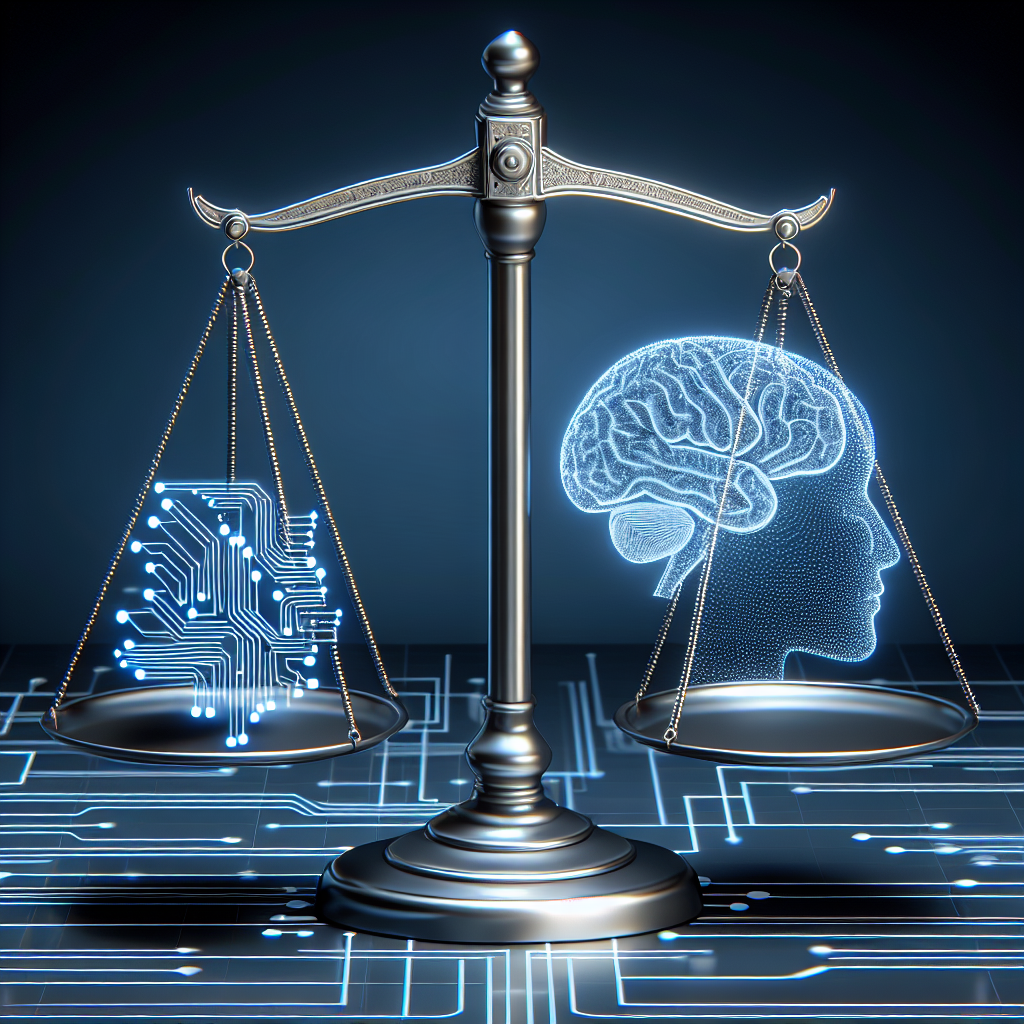The Ethics of AGI: Exploring the Implications of Artificial General Intelligence
Artificial General Intelligence (AGI) refers to the hypothetical ability of a machine to perform any intellectual task that a human can do. While we are still a long way from achieving true AGI, the rapid advancements in artificial intelligence (AI) have raised important ethical questions about the implications of developing such technology. In this article, we will explore the ethical considerations surrounding AGI and the potential impact it could have on society.
Ethical Considerations of AGI
The development and deployment of AGI raise a host of ethical concerns, ranging from issues of fairness and accountability to questions of safety and control. Here are some key ethical considerations to keep in mind when discussing AGI:
1. Fairness and Bias: One of the biggest concerns surrounding AI and AGI is the potential for bias in decision-making. AI systems are only as good as the data they are trained on, and if that data is biased, the AI system will produce biased results. This can have serious implications in areas such as hiring, lending, and criminal justice, where biased AI systems could perpetuate existing inequalities.
2. Accountability: Another major ethical concern is the question of accountability. Who is responsible when an AI system makes a mistake or causes harm? Should the developers be held accountable, or should the AI system itself be considered a legal person? These questions become even more complex when dealing with AGI, which could have the ability to make decisions that are far beyond the understanding of its creators.
3. Safety and Control: AGI has the potential to vastly surpass human intelligence, which raises concerns about the safety and control of such systems. If AGI were to become self-aware and act independently, it could pose a serious threat to humanity. Ensuring that AGI systems are designed with safety measures in place and have appropriate levels of control is crucial to preventing potential disasters.
4. Privacy and Surveillance: The use of AGI in surveillance and monitoring raises serious concerns about privacy and individual freedoms. AGI systems could be used to track and analyze individuals’ behavior on a massive scale, leading to widespread invasions of privacy. Striking a balance between the benefits of AGI and the protection of individuals’ rights is essential in addressing these concerns.
5. Job Displacement: The widespread adoption of AGI has the potential to disrupt entire industries and displace millions of workers. As machines become increasingly capable of performing tasks that were once done by humans, the need for human labor could diminish significantly. Ensuring that workers are retrained and supported in transitioning to new roles will be crucial in mitigating the negative impact of job displacement.
6. Autonomy and Free Will: AGI raises fundamental questions about the nature of autonomy and free will. If a machine is capable of making decisions that are indistinguishable from those made by a human, does it have its own autonomy and free will? How do we ensure that AGI systems respect the autonomy and rights of individuals in their decision-making processes?
7. Global Governance: The development of AGI is a global endeavor, with multiple countries and organizations working to advance the technology. Ensuring that AGI is developed and deployed ethically and responsibly will require international cooperation and coordination. Establishing global governance frameworks that address the ethical implications of AGI will be essential in guiding its development in a way that benefits humanity as a whole.
FAQs
Q: What is the difference between AI and AGI?
A: AI refers to systems that can perform specific tasks by mimicking human intelligence, while AGI refers to systems that have the ability to perform any intellectual task that a human can do. AGI represents a higher level of intelligence and versatility compared to traditional AI systems.
Q: Are there any ethical guidelines for the development of AGI?
A: Several organizations, such as the Future of Life Institute and the Partnership on AI, have developed ethical guidelines for the development and deployment of AI and AGI. These guidelines emphasize principles such as transparency, fairness, accountability, and safety in the design and implementation of AI systems.
Q: How can we ensure that AGI is developed ethically?
A: Ensuring the ethical development of AGI will require a multi-faceted approach that involves collaboration between researchers, policymakers, industry stakeholders, and the public. Establishing clear ethical guidelines, promoting transparency in AI research, and engaging in open dialogue with stakeholders are key steps in ensuring that AGI is developed in a responsible and ethical manner.
Q: What are some potential benefits of AGI?
A: AGI has the potential to revolutionize numerous industries and solve complex problems that are beyond the capabilities of human intelligence. From advancing scientific research to improving healthcare and transportation systems, AGI could bring about significant advancements that benefit society as a whole.
Q: How can we address the ethical implications of AGI?
A: Addressing the ethical implications of AGI will require a combination of regulatory frameworks, industry standards, and public engagement. Establishing clear guidelines for the responsible development and deployment of AGI, promoting transparency and accountability in AI research, and fostering public dialogue on the ethical implications of AGI are essential steps in ensuring that AGI is developed in a way that benefits humanity.
In conclusion, the development of AGI has the potential to bring about significant advancements in technology and society, but it also raises important ethical questions that must be addressed. Ensuring that AGI is developed and deployed ethically and responsibly will require collaboration and dialogue among researchers, policymakers, industry stakeholders, and the public. By considering the ethical implications of AGI and taking proactive steps to address them, we can harness the potential of AGI to benefit humanity while minimizing potential risks and harms.

